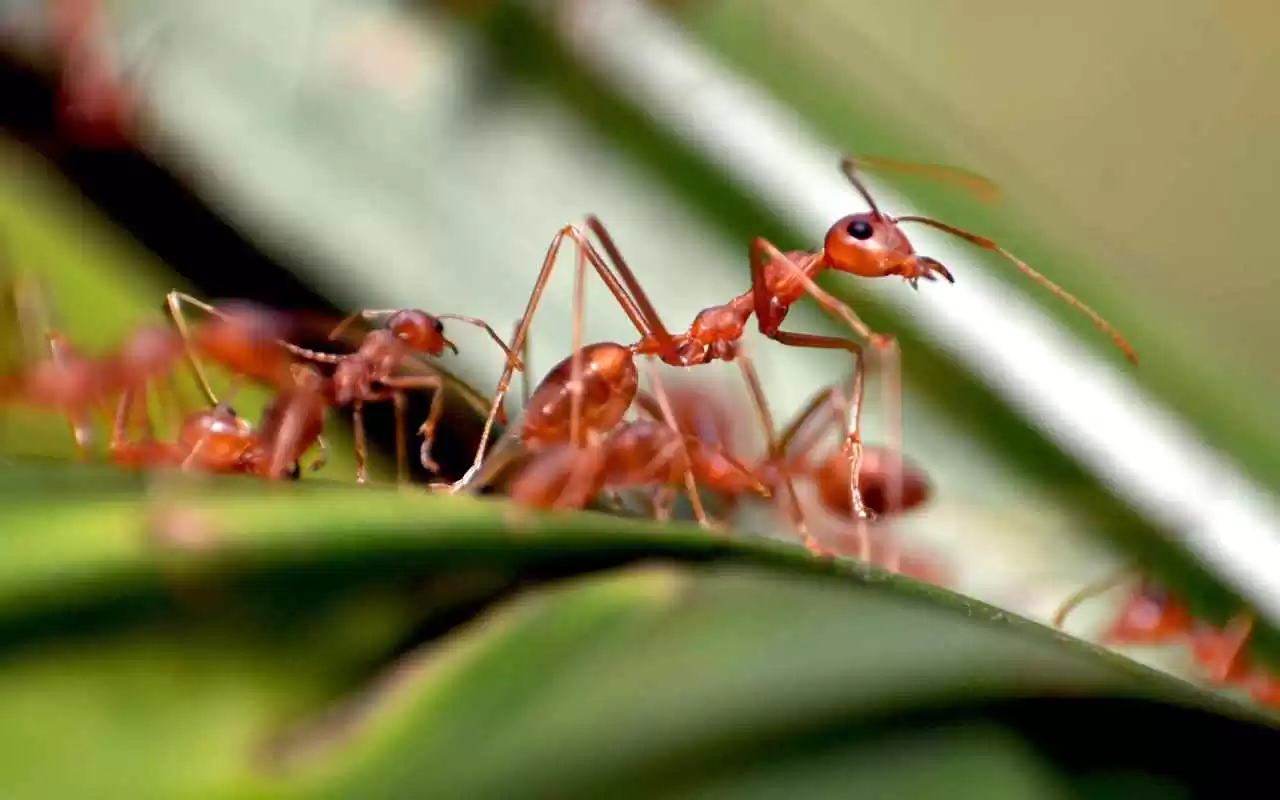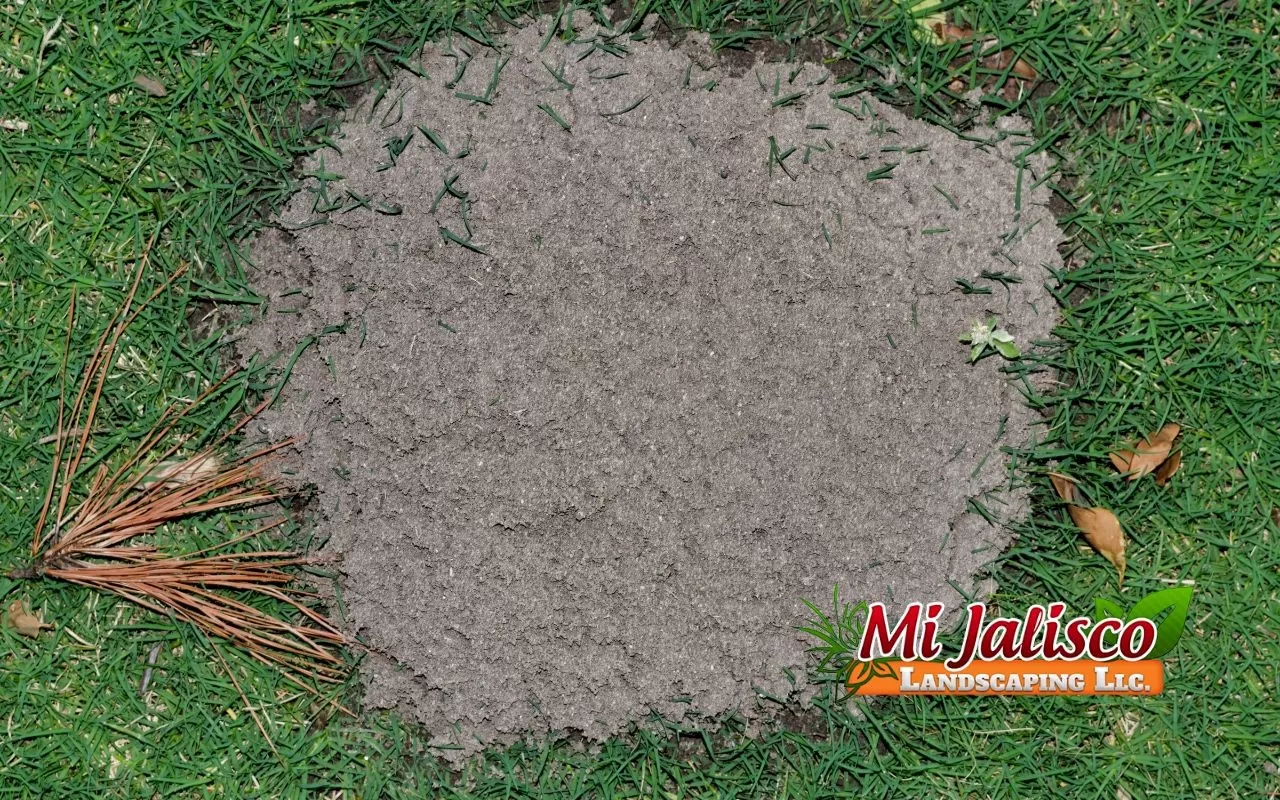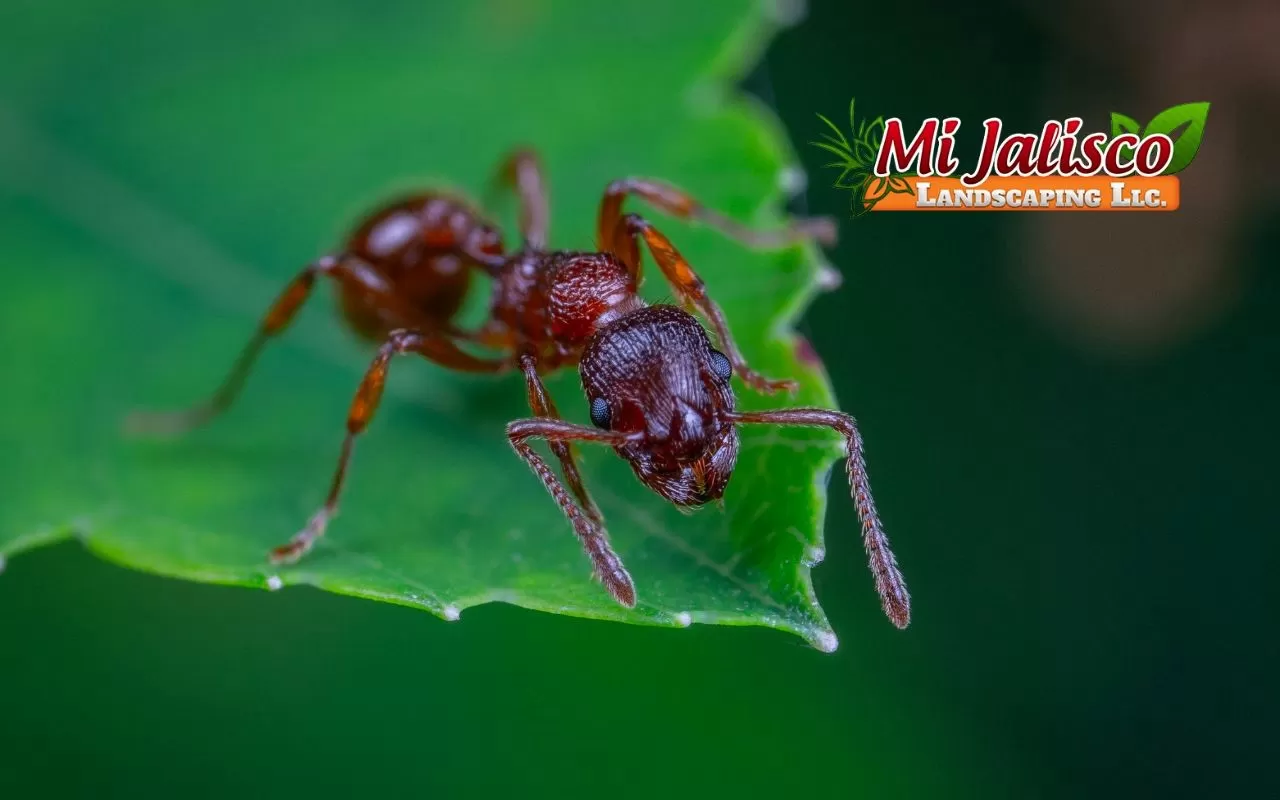Is your lawn being taken over by uninvited guests? Discover how to take back control of your lawn insect control with our expert tips and advice on lawn insect control. Ants are infamous for unceasing exploration of new territories, including your lawn.
Ant invasions can cause significant damage to your property as they excavate and loosen soil, leaving behind unsightly hills and piles of dirt. While some types of ants benefit your lawn, a few can cause severe damage.
In this blog post, we’ll look at how to treat your whole yard for ants effectively to prevent the deterioration of your lawn and garden.
The Danger of Ant Invasions on Your Lawn
Ants are social insects that often move in large colonies and can invade your lawn due to drought, rain, and soil composition.
Though some species of ants benefit your lawn, others can be harmful. As we mentioned earlier, ants can excavate the soil and construct unsightly mounds, which can cause tripping hazards.
Some species of ants also spread diseases, which can be harmful to your pets and children. Moreover, they can potentially damage your plants by feeding on their roots, so it’s essential to identify common ant species in your lawn.
Identify Common Ant Species in Lawns

Ants come in a variety of shapes and sizes. Fire ants, for example, are tiny and reddish to dark brown, while carpenter ants are larger and black or reddish-brown. The best way to identify ant species in your lawn is to call a professional pest control service for diagnosis.
They can check for ant infestations, identify the species, and administer the proper treatment for your lawn. It’s essential to identify the ant species so that you can choose the right methods to control them.
Ways to Prevent Ant Infestations – Lawn Insect Control
Preventing ants from entering your lawn is crucial to keep your garden intact. Here are some simple things you can do to avoid ant colonies from forming in your yard:
- Maintain lawn debris to a minimum, as it can attract ants to your lawn.
- Preserve your lawn well-watered, as drier soils tend to attract ants.
- Keep firewood piles off the ground and away from your yard so that ants cannot use it as their home.
- Avoid planting trees or shrubs near your home or lawn, as they provide overhanging coverage for ants to crawl down.
- Seal cracks and crevices in your home’s foundation, as ants can use these to access your yard.
How to Treat Your Whole Yard for Ants

If your lawn has already been infested with ants, it’s time to take action before it’s too late. Here are some common methods for treating your whole yard for ants:
- Non-chemical approach – Pesticides should be used only as a last resort, and using chemical pesticides for treating ants should be avoided. You can try natural remedies such as boiling water over ant hills to kill them.
- Use bait stations – Ant bait stations are effective for targeting entire ant colonies and are a popular method for controlling ants in the lawn.
- Hire a Professional Pest Control Service – Professional pest control services can help you identify the ant species, use the proper methods to control them, and prevent future infestations. They can also suggest the right treatment plan depending on the level of infestation and the number of ant colonies in your yard.
Natural Ant Control Remedies to Try – Lawn Insect Control
Apart from doing the usual treatments to get a pest-free and lush lawn, natural remedies can prove quite effective, as they do not harm the environment or damage your lawn. Here are some natural remedies you can try at home:
- Applying Diatomaceous Earth – Sprinkle diatomaceous earth around the ant entry points and their mound sites helps kill the ants and dry their skin.
- Spraying vinegar – Mix vinegar and water equally and spread it on the ant hills. The acetic acid in the vinegar kills the ants and disinfects the soil.
- Using Essential Oils – Essential oils like peppermint and eucalyptus can repel ants from your lawn as they dislike the strong odors.
How to Keep Your Lawn Free of Common Ant Species | Lawn Insect Control
Keeping your lawn free of common ant species is essential for a beautiful and healthy yard. While ants can be beneficial to the ecosystem, they can also damage your lawn and garden, as well as invade your home. Here are some tips on how to keep your lawn free of common ant species:
Keep Your Lawn Clean and Dry:
Ants thrive in moist environments, so keep your lawn clean and dry. Remove any debris or clutter, and avoid overwatering your lawn.
Use Natural Remedies:
Natural remedies like cinnamon, vinegar, and lemon juice can help repel ants. Simply sprinkle cinnamon around the perimeter of your lawn or spray a mixture of vinegar and water on ant trails.
Apply Insecticide:
Insecticides can effectively eliminate ant colonies, but be careful when using them, as they can also harm beneficial insects. Look for insecticides designed for ants and apply them according to the instructions.
Seal Entry Points:
Ants can enter your home through small cracks and gaps in your walls and foundation. Seal these entry points with caulk to prevent ants from invading your home.
Hire a Professional:
Consider hiring a professional pest control company if you have a severe ant infestation. Indeed, they can identify the species of ants and provide effective treatments to eliminate them.
Keeping your lawn free of common ant species is vital to maintaining a healthy and beautiful yard. Following these tips can prevent ant infestations and protect your home and garden from damage.
Conquer Your Ant Problem: Tips and Tricks to Keep Your Lawn and Garden Ant-free!

Ants can be a hassle, but they can be controlled if you take prompt action. Keeping your lawn clean and well-maintained prevents ant colonies from forming. Additionally, using natural alternatives or professional services makes more sense and is less harmful than using chemical methods. These tips and treatments will help keep your yard and garden ant-free.



